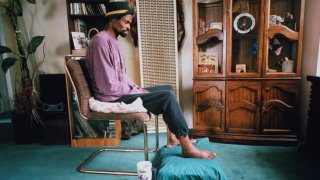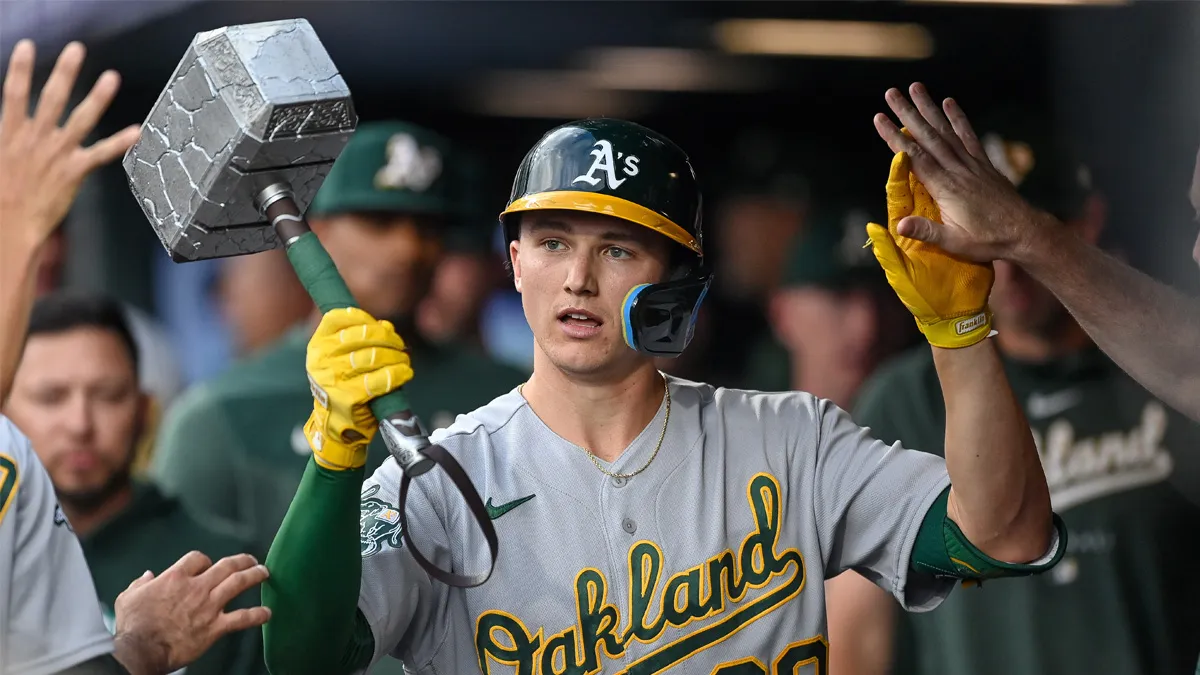
Glenn Burke played in his last MLB game just over three weeks prior to the 10th anniversary of the Stonewall uprising.
Burke, an Oakland native who became the first former MLB player to come out as gay in 1982, went 0-for-5 on June 4, 1979 against Cleveland in what would be his final appearance for the A's. Twenty-four days later marked the 10th anniversary of a raid on the Stonewall Inn, a gay bar in Greenwich Village, that prompted days of violent demonstrations from nearby members of the LGBTQ community fed up with the marginalization and criminalization by police. Those demonstrations marked a turning point in the movement for LGBTQ equality, and why June is celebrated as Pride month.
But Burke didn't come out during his career, ending a brief retirement months before the 11th anniversary of Stonewall before being out of baseball entirely on the 12th. The A's sent Burke to Triple-A Ogden in 1980 after he injured his knee in spring training, and Burke retired for good later that year.
Stay in the game with the latest updates on your beloved Bay Area and California sports teams! Sign up here for our All Access Daily newsletter.
"I had finally gotten to the point where it was more important to be myself than a baseball player," Burke told Michael J. Smith, then with Inside Sports, in 1982.
On Sunday's 51st anniversary of the events at Stonewall, Burke had been dead for over a quarter-century. He died of AIDS-related complications on May 30, 1995.
Burke didn't live to see Billy Bean become MLB's second player to come out as openly gay in retirement, nor did he live to see Bean become MLB's first ambassador for inclusion. Bean penned Burke a letter on the 25th anniversary of the Oakland native's death for OutSports, noting the strides the A's and Los Angeles Dodgers -- Burke's former teams -- had made in terms of LGBTQ inclusivity. With Bean in attendance, the A's held their first LGBT Pride Night just over 20 years after Burke's passing, donating nearly $25,000 to LGBTQ organizations and inviting Burke's brother to throw out the ceremonial first pitch.
The A's that Burke joined weren't nearly as welcoming.
Some of Burke's teammates refused to shower with him, talking about his sexuality behind his back. Manager Billy Martin, whose hiring ahead of the 1980 season inspired Burke to unretire, was extremely homophobic.
Oakland Athletics
Mike Norris, Burke's roommate, told Fangraphs' The Hardball Times in 2015 that Martin used Burke's knee injury and waning production as cover to send Burke to Triple-A in 1980. Martin, according to Norris, was so unwilling to manage a gay player that he cut another player -- Derek Bryant, who, like Burke, is Black -- in spring training after mistaking him for Burke.
"He’s playing out in left field, and Billy looks out there, and he says, ‘Get that [m---------ing] homosexual out of there.’ " Norris recalled of Bryant. "He comes out of the game, and it’s the wrong guy. He thought Bryant was Burke, and it ruined Derek’s career. Sent him out of camp, and he never came back to the big leagues.”
In the 2010 documentary "OUT: The Glenn Burke Story," former A's third baseman Claudell Washington said Martin used a homophobic slur to introduce Burke to his teammates in 1980. Burke said in his autobiography that Martin didn't call him that "to his face," but not being out publicly weighed on him during his short MLB career. He didn't feel he could be himself without being an elite player, so he quit.
"It's harder to be a gay in sports than anywhere else, except maybe president," Burke told Smith in 1982. "Baseball is probably the hardest sport of all. Every man in America wants his son to be a baseball player. The first thing every father buys for his son is a ball and glove. It's all-American. Only a superstar could come out and admit he was gay and hope to stay around, and still the fans probably would call the stadium and say they weren't going to bring their kids. Instead of understanding, they blackball you."
[RELATED: A's have six open spots in initial player pool announcement]
Burke was beloved by his Dodgers teammates, but Los Angeles' front office allegedly traded the once-prized prospect to the A's because he was gay. The Oakland native was treated no better by his hometown team, and unable to truly be himself. It's difficult not to conclude that Burke's major league performance -- he batted .237 in his MLB career -- was affected by the weight of his secret.
Fifty-one years after Stonewall and 25 after Burke's death, no MLB player has come out as gay during their career. This country has made great strides towards LGBTQ equality as MLB has towards true inclusivity, but there is still so much more ground to cover.
Burke's experience is yet another reminder.


